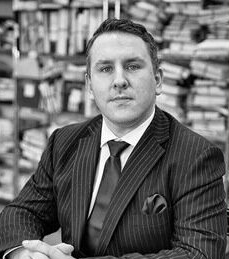John Nee is a barrister working with Becket Chambers serving clients across Kent, Sussex and South East England. He specialises in Chancery, Commercial, and Family Finance and is now the head of Pupillage at Becket Chambers. He is also a former professional rugby player!
This year I take over from a colleague as Head of Pupillage. I have, since I joined Becket Chambers, been involved in interviewing prospective pupils. I have seen and interviewed the good, the OK, and the bad.
So, some thoughts to keep in mind.
1. Proof read, re-read, spell check, and repeat. I am a barrister. I may from time to time make a spelling mistake, or throw out a typo. From an interview perspective, I am on the side of the desk where I can afford to make the odd mistake, though I try not to! You are not a (working) barrister, but you want to be one. So make sure there are no mistakes in your application.
2. Don’t lie. Interviewing barristers are BS detectors. Whatever creative spin you think you are using on us for the first time, we have seen it, heard it, and quite possibly used it before you. Tell the truth and be honest about any gaps in your CV or weaknesses in your grades.
3. Brace yourself. Every chambers has a different approach to interviews. Some are very aggressive, some are more like an informal chat. You do not know what to expect, so be ready for anything.
4. Look sharp. This is an old, conservative profession. Whilst perhaps we are not as stuffy and formal as we once were, you are never going to be marked down for being the smartest dressed person in the room. I want to picture you dealing with a client, so help me paint that picture. Jewellery and flamboyant accoutrements are best left at home.
5. Do your homework. I am unlikely to be impressed if you do not know where my chambers has an annex, or how many colleagues I have. I expect you to have been to chambers’ website AND social media feeds AND google. And then to be able to discuss them with the panel.
6. Remember that your interviewer(s) want you to do well. I have been known to push, hard, when interviewing candidates. That is because I want you to impress me, and impress my colleagues. Never take offence at a question- offence is not intended. Barristers need a thick skin. If you do not already have one, then grow one- fast.
7. Read the legal news, daily, for at least a month in the run up to your interview. If you tell me you have an interest in legal matters, I will very quickly find out whether you really do or not.
8. Seek feedback afterwards if unsuccessful. This may be the hardest part. Try not to hate those who interviewed you- even the ones (possibly including me) who cross examined you in front of the panel. The margins are very small, and sometimes the difference between success and failure can be nothing more than a minor adjustment. We have all been on the other side of the interview table, and we all sympathise with the pressure.
9. Remain positive. If you have reached first round interview, you are on the right track. If you have reached final interviews, you were, in the eyes of the selectors, one of the best candidates. Take every opportunity you can to improve and develop, and go into your next interview having carried out some honest self-reflection.
To find o ut more about the work John Nee takes part in, see Becket Chambers website.
ut more about the work John Nee takes part in, see Becket Chambers website.
To find out more about how Becket Chambers works with EP, see here.
Follow John on Twitter @john_nee
